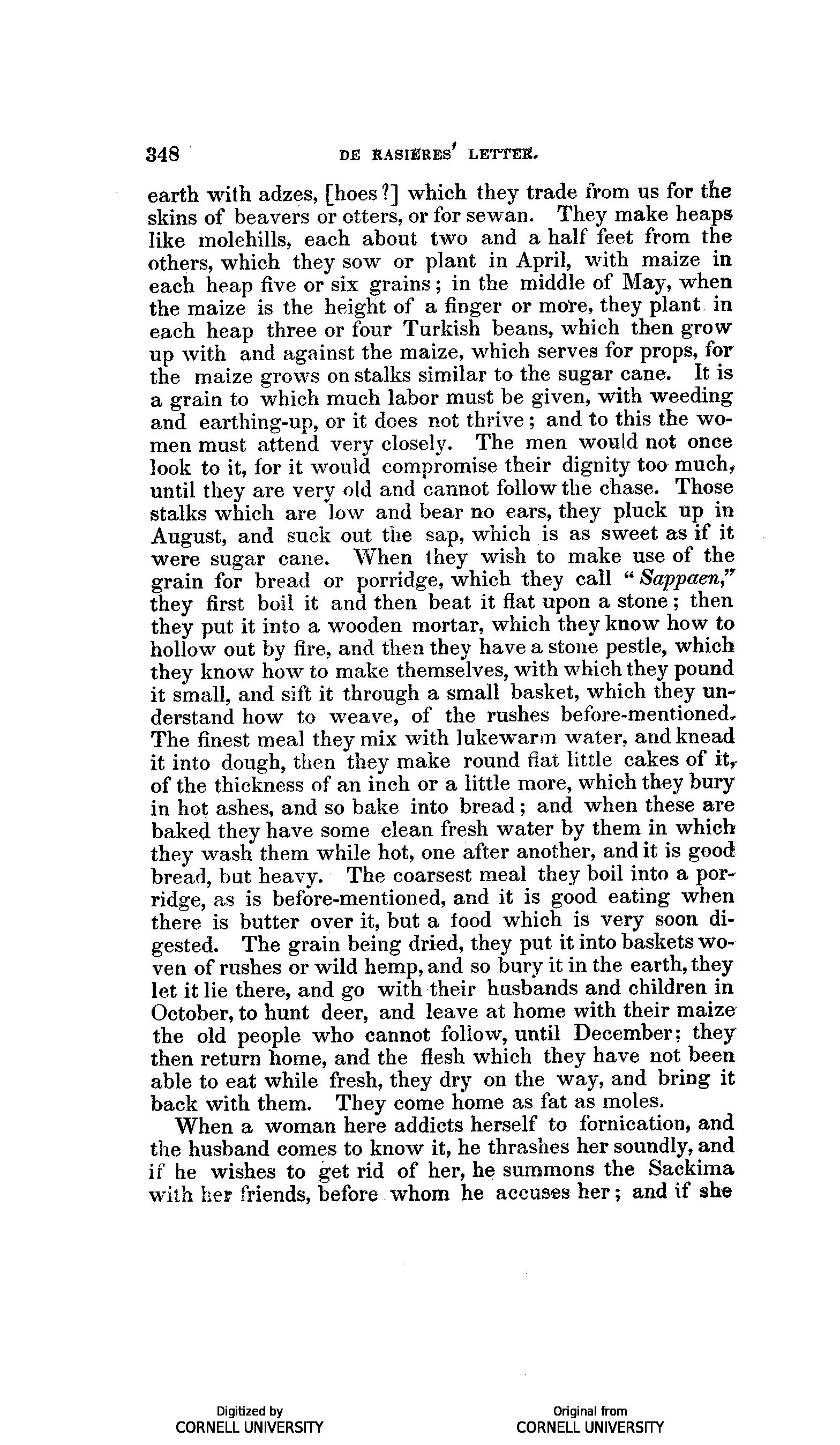earth with mattocks, which they buy from us for the skins of beavers or otters, or for sewan. They make heaps like molehills, each about two and a half feet from the others, which they sow or plant in April with maize, in each heap five or six grains; in the middle of May, when the maize is the height of a finger or more, they plant in each heap three or four Turkish beans, which then grow up with and against the maize, which serves for props, for the maize grows on stalks similar to the sugarcane. It is a grain to which much labor must be given, with weeding and earthing-up, or it does not thrive; and to this the women must attend very closely. The men would not once look to it, for it would compromise their dignity too much, unless they are very old and cannot follow the chase. Those stalks which are low and bear no ears, they pluck up in August, and suck out the sap, which is as sweet as if it were sugar-cane. When they wish to make use of the grain for bread or porridge, which they call Sappaen, they first boil it and then beat it flat upon a stone; then they put it into a wooden mortar, which they know how to hollow out by fire, and then they have a stone pestle, which they know how to make themselves, with which they pound it small, and sift it through a small basket, which they understand how to weave of the rushes before mentioned. The finest meal they mix with lukewarm water, and knead it into dough; then they make round flat little cakes of it, of the thickness of an inch or a little more, which they bury in hot ashes, and so bake into bread; and when these are baked they have some clean fresh water by them in which they wash them while hot, one after another; and it is good bread, but heavy. The coarsest meal they boil into a porridge, as is before mentioned, and it is good eating when there is butter over it, but a food which is very soon digested. The grain being dried, they put it into baskets woven of rushes or wild hemp, and bury it in the earth, where they let it lie, and go with their husbands and children in October to hunt deer, leaving at home with their maize the old people who cannot follow. In December they return home, and the flesh which they have not been able to eat while fresh, they smoke on the way, and bring it back with them. They come home as fat as moles.
When a woman here addicts herself to fornication, and the husband comes to know it, he thrashes her soundly, and if he wishes to get rid of her, he summons the Sachem with her friends, before whom he accuses her. And if she


